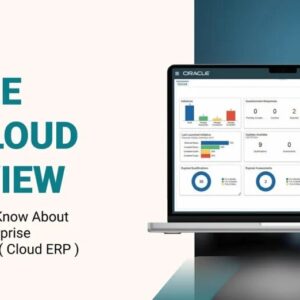Agriculture remains a cornerstone of Australia’s economy, providing not only food and raw materials but also employment and export opportunities. However, running an agricultural business is vastly different from operating in other industries. Farmers and agribusiness owners face fluctuating incomes, seasonal expenses, weather risks, and complex tax laws that govern everything from land use to livestock management. Understanding the unique tax needs of agricultural businesses is therefore essential for ensuring compliance, maximising deductions, and maintaining financial sustainability.
Agricultural taxation involves a series of regulations and incentives designed specifically to accommodate the unpredictable nature of farming. While general business taxation rules still apply, farmers benefit from several industry-specific provisions that acknowledge the seasonal income patterns and long-term investment requirements inherent in agriculture. This complexity means that effective tax planning and professional advice can make a significant difference to an agricultural enterprise’s financial outcomes.
One of the most distinctive features of agricultural taxation is the treatment of income averaging. Farmers often experience wide income fluctuations due to factors such as droughts, floods, changing commodity prices, and market demand. The Australian Taxation Office (ATO) allows primary producers to use income averaging provisions to smooth taxable income over a five-year period. This means that in years of high income, a farmer may pay less tax than would otherwise be the case if the same amount were earned in a non-primary industry. Income averaging provides a valuable buffer against income volatility, allowing better cash flow management and long-term financial planning.
Another key area of focus for agricultural businesses is the depreciation of assets. Farms typically rely on high-value equipment and machinery, such as tractors, irrigation systems, and harvesting tools. The ATO allows for accelerated depreciation under certain conditions, enabling farmers to claim deductions faster and improve short-term cash flow. For example, under temporary full expensing provisions (which have been periodically extended), eligible assets purchased and installed can be immediately deducted in the year of purchase. This policy encourages reinvestment and modernization within the agricultural sector, allowing businesses to remain competitive and efficient.
The management of livestock presents another layer of tax complexity. Livestock can be treated as trading stock, meaning farmers must include the value of their animals at the beginning and end of each financial year. Alternatively, in specific situations such as drought or natural disaster, special valuation rules can be applied. For instance, forced sales due to environmental factors may qualify for tax deferral arrangements, allowing farmers to postpone the recognition of income until the livestock numbers are replenished. This flexibility is crucial in managing financial stress during difficult seasons.
Land management and environmental stewardship also play an important role in agricultural taxation. Many farmers invest heavily in conservation and land improvement measures, such as soil erosion control, water conservation, and tree planting. The government encourages such initiatives through various deductions and incentives. Expenditure on landcare operations can often be immediately deducted, provided it contributes to sustainable land use and prevents degradation. Moreover, carbon farming initiatives and biodiversity conservation projects can open additional financial opportunities through government grants and tax concessions.
Superannuation and succession planning are also essential considerations for agricultural business owners. Family farms often represent not just a livelihood but a legacy passed down through generations. Tax-effective succession planning ensures that the transfer of ownership occurs smoothly and with minimal financial disruption. Strategies may include using trusts, restructuring entities, or gradually transferring assets to the next generation. Professional advice can help ensure compliance with tax obligations while preserving the family’s wealth and operational stability.
Another significant area of concern is Goods and Services Tax (GST) compliance. Agricultural businesses deal with complex supply chains that include the sale of produce, purchase of equipment, and sometimes export activities. Farmers registered for GST can claim input tax credits for business-related purchases, helping to reduce overall expenses. However, determining which transactions are taxable, GST-free, or input-taxed can be challenging. For instance, exports of agricultural products are generally GST-free, while domestic sales are taxable. Proper record-keeping and expert advice are critical to ensure accuracy and avoid costly errors or audits.
In addition to income tax and GST, many agricultural businesses must consider payroll tax, fringe benefits tax (FBT), and other obligations related to employing seasonal or full-time workers. Given the reliance on temporary labor, especially during harvest season, employers need to ensure they are meeting all reporting and withholding requirements. FBT may apply to benefits provided to employees, such as housing or vehicles, which are common in rural areas. Clear documentation and correct valuation of these benefits are vital for compliance and transparency.
Weather events, a defining characteristic of agricultural risk, can also have significant tax implications. Natural disasters such as floods, droughts, or bushfires often lead to substantial losses. The ATO offers various relief measures to help farmers recover, including deferred tax payments, disaster assistance grants, and concessional loan programs. Additionally, deductions for insurance premiums and the ability to write off destroyed assets provide financial support during recovery. Strategic use of these provisions can help farmers stabilize their operations in the face of uncontrollable environmental conditions.
Modern agricultural businesses are increasingly diversifying their income sources. Many farms now generate additional revenue through agritourism, farm stays, or renewable energy projects such as solar or wind installations. While diversification can improve financial resilience, it also introduces new tax considerations. Different income streams may fall under different tax categories, requiring careful allocation of expenses and understanding of GST implications. Accurate bookkeeping and tailored advice can ensure that diversification remains beneficial rather than burdensome.
Effective tax planning for agricultural businesses requires not just technical knowledge but also a deep understanding of the industry’s unique rhythms. Professionals specialising in agricultural accounting can assist with cash flow forecasting, entity structuring, and maximizing deductions. They can also provide strategic advice on investments and long-term sustainability. Services such as Tax Accounting in Melbourne offer tailored solutions that address the complex needs of rural and regional enterprises while ensuring compliance with national taxation laws.
Another emerging issue in the agricultural sector is the impact of technological innovation. Digital farming tools, precision agriculture, and data analytics are transforming how farmers operate. These technologies often involve significant upfront investments, making it essential to understand the associated tax deductions and depreciation rules. Additionally, software subscriptions and data service costs may be eligible as business expenses. Leveraging technology not only enhances productivity but can also create tax efficiencies when integrated into a comprehensive financial strategy.
Record-keeping remains the backbone of sound tax management. Agricultural businesses must maintain accurate and up-to-date records of income, expenses, asset purchases, and inventory changes. Good record-keeping simplifies tax reporting, supports deductions, and ensures readiness for audits or compliance checks. In an increasingly digital world, cloud-based accounting software offers significant advantages, allowing farmers to track financial performance in real time and collaborate seamlessly with their accountants.
In conclusion, understanding the unique tax needs of agricultural businesses is crucial for financial success in an industry defined by uncertainty and change. From income averaging and livestock valuation to landcare deductions and GST compliance, every aspect of taxation in agriculture demands careful attention. With expert guidance and proactive planning, farmers can not only meet their tax obligations but also take full advantage of the benefits and concessions available to them. By aligning sound tax strategies with sustainable business practices, agricultural enterprises can build resilience, enhance profitability, and secure their legacy for generations to come.




